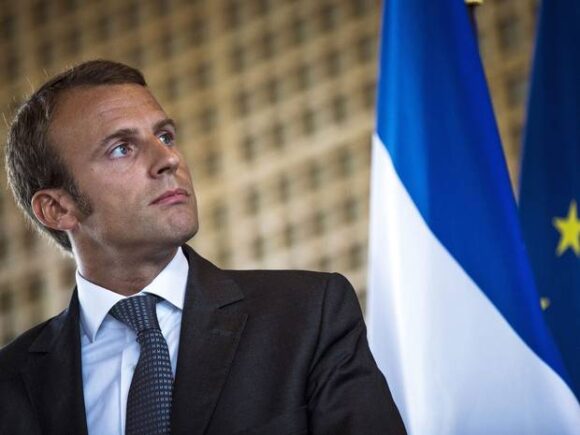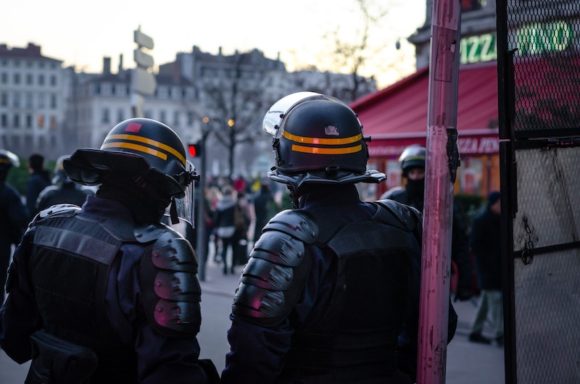
France always seems to stand out by doing the best or the worst through social and political upheavals. The movement of the gilets jaunes has been like an earthquake shaking the system to its foundations. It has created the most serious political crisis the Fifth Republic has known since its creation by General de Gaulle in 1958.
It is a pivotal moment for France and many other Western democracies when the mechanism of political institutions does not seem to work any more.
The gilets jaunes are the voice of a rural population never heard before and which feels abandoned. It is a lower middle class of workers and retirees, who can’t make it to the end of the month and feel squeezed between the very poor — benefiting from social relief — and the more affluent middle class.
At first overwhelmingly supported by the public opinion, their number –occupying roundabouts and tolls — has reduced from over 280,000 on Nov. 17, to about 84.000 today. Public opinion is becoming weary of the continuous violence.
“Act XI” is taking place as this article is being written.

A spectacular fist fight on the footbridge linking the Quai d’Orsay and the Tuileries garden marked the month of January. Over time a hard core of gilets jaunes has become more radical, asking for the dissolution of Parliament, the suppression of the Senate, and basically total destruction of the system in place. It refuses dialogue while chanting “Macron. Demission” (Macron. Resign.)
The Rassemblement National (RN) extreme right party of Marine Le Pen and the communist party or France Insoumise (LFI) are riding the wave. They help circulate false news to discredit Macron and his government. The terrorist attack in Strasbourg in early December or the recent deadly explosion due to a gas leak in the center of Paris were just diversion tactics by the Executive, they say.
On Jan. 23, France and Germany signed the treaty of Aix La Chapelle to reinforce cooperation between the two countries and facilitate trans-border relations. The treaty was followed by the announcement of outrageously distorted news on social networks that Alsace-Lorraine was being returned to Germany.
Eighteen months into his mandate, Macron started to suffer a catastrophic collapse in the polls. It was not a first for a French president: Sarkozy and Hollande before him suffered the same disaffection soon after their election. For Macron though, the intensity of the fall was all the more spectacular as his victory had created a surge of hope.
Today he is trying to turn the tide around and pull the country out of its crisis. And his method? A “Great Debate” throughout the country lasting until March 15.
On Jan. 13, the president posted a “Lettre aux Français” suggesting four themes open to discussion: taxes, public services, energetic transition, and political institutions, including immigration. France is being turned into a laboratory to experiment with new forms of government – representative, participative or direct (with frequent referendums).
The hard core of gilets jaunes declined to participate.
Macron’s initial step was to face some of the 35.000 mayors of France. First 700 of them in Normandy, then two days later 700 in the Lot department (Occitanie region.) It was an impressive show of participative government in action. Selected mayors presented their grievances related to very concrete and local problems: closing schools, disappearance of public services, medical “desertification,” lack of accessible transports, inadequate internet and phone access, hurtful impact of giant shopping malls on small business, and the demise of downtown areas of small town and villages.
Each speaker was polite, direct and, at times, quite tough. Macron’s performance was phenomenal. As each speaker took the microphone, the president was taking notes furiously. For close to seven hours, he absorbed the remarks then answered each one, recalling the interlocutor’s name. His language was familiar, bringing smiles to the faces in the audience and devoid of any demagoguery.
For instance, he expressed his opinion on how dangerous popular referenda can be, especially when based on false information — citing the UK’s Brexit vote as an example. Overall it was refreshing to witness courteous and constructive exchanges, far from the heinous invectives to which the president has been submitted lately.
The “Great Debate” is a courageous, but risky exercise. Talking to the mayors was the easy part. It will be harder for him to convince broader public opinion — including the moderate gilets jaunes — how to make a synthesis from all the wide array of grievances and turn them into immediate and concrete measures?
Macron must meet some, if not all, of the demands being made by the gilets jaunes without appearing to be weak and submissive. In spite of the popular pressure for lower taxes and more benefits, he cannot afford to lose his objective, which is to reform France and make it economically competitive. Finally, time is short since there will only be two months left after the debate before the European elections are held.

The violence brought on by the weekly street warfare in Paris, Bordeaux and many other cities has tarnished the image of France abroad. The damage caused to the urban landscape, small businesses and whole sectors of the economy can be numbered in millions of Euros. The loss of one point of France’s GDP has even become worrisome for the IMF.
On Jan. 22, Macron invited 125 of the most important world CEOs, who were on their way to the Davos Economic Forum, to a lavish lunch at the Chateau de Versailles, in order to reassure them of his country’s viability and stability prior to a possible Brexit.
The polls have risen slightly in favor of Macron but the president still faces an uphill battle. France is fortunate to have a young president full of energy … but the jury is still out on his future.
Editor’s Note: This is the opinion of Nicole Prévost Logan.

About the author: Nicole Prévost Logan divides her time between Essex and Paris, spending summers in the former and winters in the latter. She writes a regular column for us from her Paris home where her topics will include politics, economy, social unrest — mostly in France — but also in other European countries. She also covers a variety of art exhibits and the performing arts in Europe. Logan is the author of ‘Forever on the Road: A Franco-American Family’s Thirty Years in the Foreign Service,’ an autobiography of her life as the wife of an overseas diplomat, who lived in 10 foreign countries on three continents. Her experiences during her foreign service life included being in Lebanon when civil war erupted, excavating a medieval city in Moscow and spending a week under house arrest in Guinea.